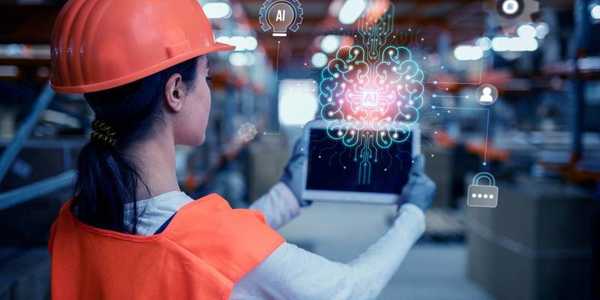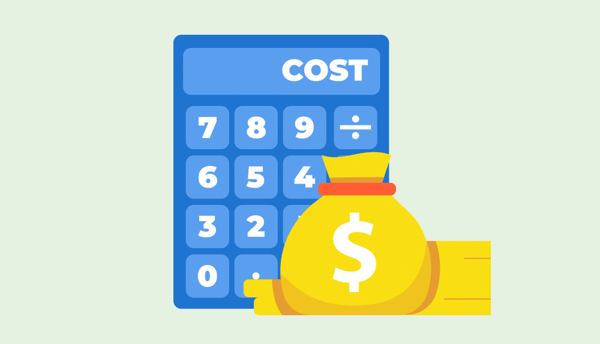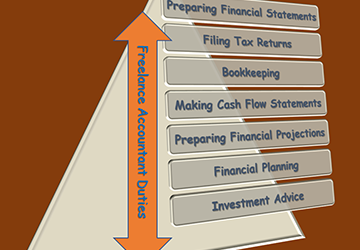The construction industry faces persistent challenges, particularly in terms of time inefficiencies and rising costs. Enter AI technology—a transformative solution that has the potential to revolutionise the sector. As AI solutions continue to emerge, they redefine processes and create workflows essential for the industry's future success.
The Growing Importance of AI in Construction

AI technologies are transforming the way construction projects are conceived and executed. For instance, predictive analytics can identify project risks by analysing extensive datasets from previous endeavours, enabling informed decision-making that helps minimise delays and financial overruns. A notable application of AI is in Building Information Modeling (BIM), which allows real-time data updates and accurate design simulations. This capability optimises resource management and helps identify potential conflicts before they escalate into costly site issues.
Moreover, AI significantly enhances workplace safety. AI-powered tools analyse job site conditions and utilise technologies that track worker movements to enforce compliance with safety protocols. Thus, the integration of AI not only boosts efficiency and precision but also nurtures a safer work environment. As the construction industry increasingly embraces these technological advancements, the profound potential for AI to transform operations becomes unmistakably clear, signaling a new era for the sector.
Types of AI Construction Software and Their Benefits
1. Project Management Tools
AI-powered project management tools, such as Procore and PlanGrid, are at the forefront of transforming the construction landscape by facilitating improved project coordination and communication among teams.
A key advantage of these AI-driven solutions lies in their capacity to minimize delays. By predicting potential challenges and suggesting timely interventions, project teams can address issues before they become major setbacks, ensuring projects remain aligned with schedules. Enhanced communication features bolster collaboration among stakeholders, expediting decision-making and problem-solving. By keeping all team members informed and connected, the risk of miscommunication is substantially reduced, ensuring collective alignment toward shared project objectives.
Additionally, these platforms play an integral role in managing budgets. They provide insights into expenditure patterns and project timelines, enabling construction firms to stay within fiscal boundaries. Features that monitor costs in real-time and generate reports enable project managers to identify overspending trends early, allowing for prompt corrective actions. Ultimately, the incorporation of AI into project management enhances operational efficiency and contributes to the successful completion of projects within designated timeframes and budgetary limits.
2. Cost Estimation Software
AI-driven cost estimation tools, such as Sage and Builders Software, are fundamentally altering how construction firms approach budgeting and financial forecasting. These sophisticated platforms utilise advanced algorithms to analyse historical data, current market rates, and project specifications, resulting in highly accurate cost predictions. By utilizing machine learning, these tools adapt and enhance their estimations over time as they gather additional data from completed projects.
A notable example showcasing the benefits of AI in cost estimation is a leading construction firm that implemented Sage software. By adopting this technology, the company achieved a 20% reduction in cost overruns, resulting in significant savings across multiple projects within a single fiscal year. The software's capability to analyse various cost scenarios empowered project managers to understand budgetary constraints and make informed decisions, significantly reducing overall project expenses.

Similarly, Builders Software aided a mid-sized contractor in accurately predicting expenses for a large-scale commercial project. Utilising AI-enhanced insights, the contractor was able to save over $100,000 compared to conventional estimation methods. These real-world success stories underscore the effectiveness of AI in improving cost accuracy and highlight how such tools foster deliberate financial planning within an increasingly competitive construction landscape.
Overall, integrating AI cost estimation software provides a robust solution for construction companies aiming to achieve precision in budgeting and mitigate unexpected financial challenges.
Success Stories: Real-World Applications of AI in Construction
AI construction software has demonstrated its transformative power in enhancing project management efficiency and curtailing costs across various sites. For example, Turner Construction implemented AI-driven predictive analytics in their scheduling processes, resulting in a remarkable 20% reduction in labor costs and significantly shorter project timelines. As stated by their VP of Operations, "AI has fundamentally changed how we forecast our resource requirements, leading to more accurate timelines and budgets."
In another instance, Skanska utilised machine learning algorithms to refine its supply chain logistics, resulting in a 30% decline in material wastage. Their Director of Technology Innovation mentioned, "By leveraging AI, we not only saved costs but also bolstered our sustainability initiatives. It's a win-win situation."
Furthermore, Autodesk's BIM 360 platform, which utilises AI for project monitoring, served as a practical example when a major project was completed three weeks ahead of schedule, accompanied by a significant reduction in overhead costs. According to a project manager, "The real-time insights provided by AI tools allowed us to make informed decisions swiftly, boosting our project's adaptability."
These compelling case studies not only exemplify the tangible benefits of AI technologies but also reinforce their role as significant catalysts for change within the construction industry.
Future Trends in AI Construction Software
The future landscape of AI in construction software is poised for significant change, driven by innovations such as predictive analytics and integrated platforms. Predictive analytics will enable project managers to anticipate potential delays and budget overruns, empowering them to take proactive steps that mitigate risk.
Additionally, increasingly integrated platforms will facilitate seamless communication across various stakeholders, promoting collaboration and enhancing project coordination.
These advancements promise to significantly lower costs and improve time efficiency, ultimately leading to more profitable and streamlined projects. As the industry adopts these technologies, a phased approach to software integration will be crucial for achieving widespread adoption and sustainable success.
Embracing the AI Revolution in Construction
Adopting AI solutions is not merely advantageous but imperative for the construction industry to enhance efficiency and curtail costs. The integration of AI software into operational frameworks enables construction firms to optimise project management, leading to improved outcomes. The time to embrace these innovations is now, as they are pivotal for shaping a transformative future within the construction sector.

















